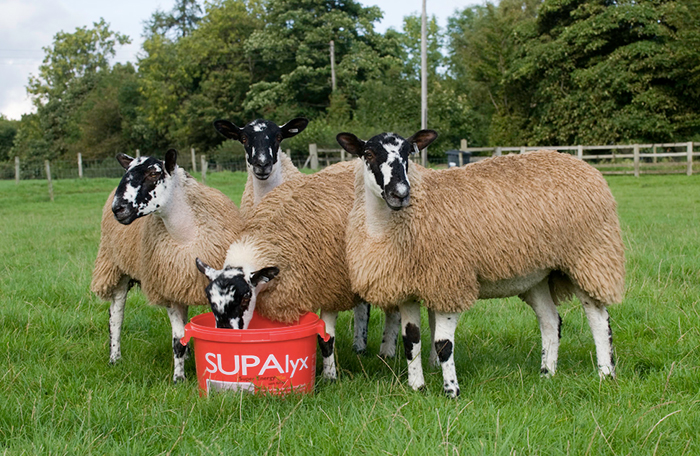
With variable grazing conditions this autumn, sheep farmers should be vigilant when assessing body condition of breeding ewes before tupping.
The potential imbalance from crude protein levels in pasture, identified by recent grass analysis, could reduce energy availability and dry matter intakes, in turn impacting on breeding success rates.
“This year, maintaining an optimal body condition score of between 2.5 and 3.5 during tupping, could be a challenge for farmers,” says David Thornton, Rumenco Technical Manager.
“Although grass growth has been unhindered this season, our fresh grass analysis has identified low dry matter, with crude protein levels averaging 20%, significantly higher than we would expect for this time of year.
“Ensuring a balanced and nutritionally rich diet is available prior to, and during, tupping will therefore be crucial to ensure ewes are receiving sufficient daily intake to maintain performance,” adds David.
Energy is the primary dietary component required during tupping, he says. “Breeding ewes require at least 11 to 12 MJ metabolisable energy per day.
“However, with an abundance of crude protein in grass this season, daily intakes may contain a disproportionate amount of crude protein, requiring extra energy to break it down in the rumen, and be excreted by the liver. Therefore, the more energy used to process protein, the less energy available for ewes’ general maintenance.
“The reduction in available energy could see condition hard to maintain, resulting in ewes not cycling or holding to service, ultimately effecting flock lambing performance.
“Therefore farmers need to bolster ewe diets this year to offset the effects of dietary imbalances from grazing and minimise the risk of poor breeding performance,” he says.
To balance nutrition, David advises providing ewes with a high energy, on-going supplement, such as Supalyx Super Energy Plus with fish oil prior to, and during, tupping, an effective long term solution, ensuring ewes stay in the best condition.
“Each bucket is formulated to include 16 MJ per kg metabolisable energy. Bucket nutrition will supplement energy intake and stimulate DMI so ewes are able to deal with the challenge of this season, receiving adequate intake to support lamb development and ewe condition.
The inclusion of fish oils in this product provide high concentrations of omega-3 in the form of long chain polyunsaturated fatty acids, which have been shown to improve fertility and blood circulation as well as boosting immune responses.
“This, combined with a balanced diet will ensure ewes are in a better condition to hold to service, and cope with environmental pressures,” he says.
David recommends supplementing ewes two weeks prior to running with the tup and for the first six weeks of tupping. “Considering the circumstances of this season, supplementing ewes with an energy rich source, over this eight week period, will be vital to ensure they receive adequate nutrition to support fertility and the initial stages of pregnancy.
“Ultimately this will have a positive effect on lambing success and financial return for farmers,” David concludes.
